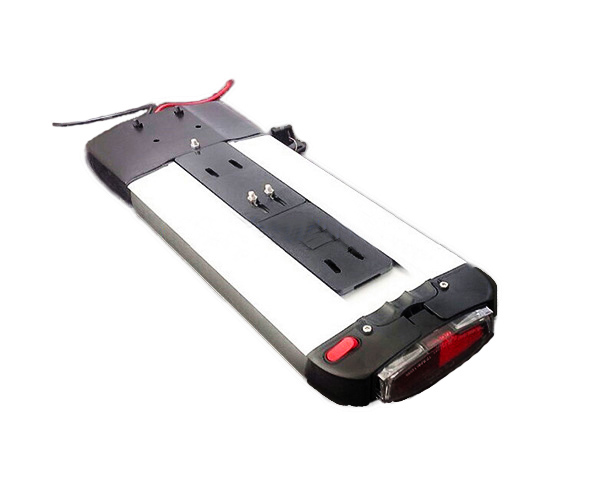In the realm of e-bikes, one critical element propels these electrified wonders into motion: the battery. The choice of an e-bike battery can significantly influence your riding experience, from range and power delivery to overall performance. With a plethora of options available, the question remains: which battery is best for your e-bike? Let's embark on a journey of exploration through battery types, capacity considerations, and more to unveil the ideal power source for your e-biking adventures.
Understanding E-Bike Battery Diversity
The world of e-bike batteries is diverse, presenting a range of technologies, chemistries, and capacities. Deciphering this landscape is essential to select a battery that aligns perfectly with your riding style and preferences.

1. Lithium-Ion (Li-ion) Batteries
Li-ion batteries reign supreme in the e-bike world, offering a blend of energy density, longevity, and lightweight construction. These batteries strike a balance between capacity and weight, delivering the power needed for efficient rides.
2. Lithium Iron Phosphate (LiFePO4) Batteries
LiFePO4 batteries emphasize durability and safety. Although slightly heavier than Li-ion counterparts, they boast an extended cycle life, making them a prudent choice for those seeking long-term reliability.
3. Nickel-Metal Hydride (NiMH) Batteries
NiMH batteries, while less common, hold their own with respectable capacity and environmental friendliness. Their bulkier form might be compensated by their eco-conscious attributes.
Decoding Capacity Calculations
Capacity is a critical factor when selecting an e-bike battery. Capacity, measured in watt-hours (Wh) or ampere-hours (Ah), directly correlates to the distance your e-bike can travel on a single charge. Understanding your riding needs is key to determining the right capacity for you.
1. Short Urban Commutes
For those navigating urban landscapes with relatively short commutes, a lower capacity battery may suffice. These batteries are not only lighter but also provide a nimble ride through city streets.
2. Extended Adventures
If your e-bike journeys involve covering considerable distances, a higher capacity battery is essential. This ensures that you can conquer those long rides without worrying about running out of power.
3. Middle Ground
For riders who seek versatility in their e-bike journeys, a mid-range capacity battery strikes a harmonious balance between weight and range.
Considering Additional Factors
Selecting the best e-bike battery goes beyond capacity and type. Consider these additional factors to make an informed decision:
1. Voltage Variation
Voltage determines your e-bike's power output. Higher voltage batteries often translate to more robust acceleration and better hill-climbing capabilities.
2. Compatibility Check
Ensure the battery you choose is compatible with your e-bike's motor and electronics. Manufacturers might offer specialized batteries designed for seamless integration.
3. Budget Boundaries
Different battery types and capacities come with varying price tags. Establishing a budget helps you explore options that align with your financial considerations.
4. Weight Wisdom
Remember that battery weight directly impacts your e-bike's overall weight. While lighter batteries enhance maneuverability, certain riding conditions might require heavier alternatives.
Peering into the Future
As technology continues to evolve, e-bike battery innovations remain on the horizon. Researchers and manufacturers are tirelessly working on batteries with enhanced energy density, faster charging capabilities, and extended lifespans. Keeping an eye on these advancements might lead you to the next generation of batteries, elevating your e-biking adventures even further.
Conclusion: Your Perfect Partner
The search for the ideal e-bike battery revolves around understanding your riding style, aspirations, and requirements. Whether you opt for the efficiency of Li-ion, the resilience of LiFePO4, or the eco-consciousness of NiMH, each choice brings its unique set of advantages. By evaluating factors like capacity, voltage, and compatibility, you're poised to make an informed decision that empowers your e-biking journeys. Embrace the quest and let your chosen e-bike battery become your reliable partner in conquering terrains and embracing adventures.



Comments
All Comments (0)